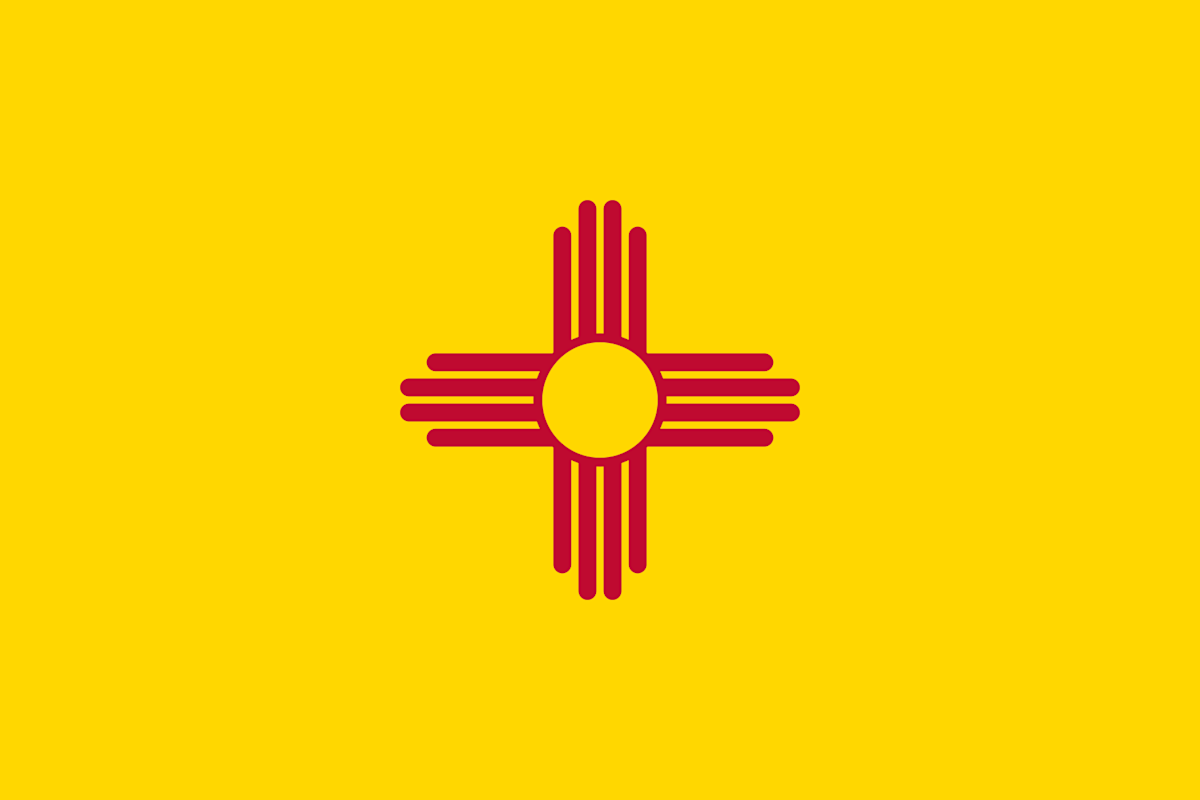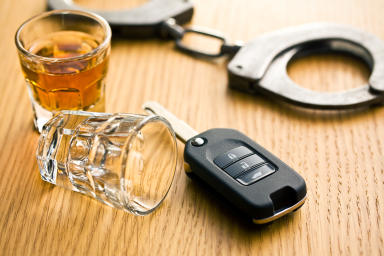New Mexico DUI Laws

According to the international driver’s education company Zutobi, New Mexico ranked 10th among states with the highest severity of DUI accidents. This ranking is unsurprising, as 2021 data from the Bureau of Transportation Statistics showed that around 72% of New Mexico residents relied on private vehicles to commute. Another 8.5% of commuters in the Land of Enchantment carpooled to work.
To decrease DUI accidents, the state has implemented multiple policies. One is sobriety checkpoints. These are set up in every community, especially during holiday weekends. Officers responsible for these checkpoints stop drivers to assess whether they are under the influence of drugs or alcohol. Another policy is all-offender laws. Essentially, the state requires drivers convicted of DUI to install interlock ignition devices, regardless of whether it is their first or third time. New Mexico was, in fact, the first state to implement all-offender laws.
These policies can only do so much, though. As such, those involved in a DUI accident need to learn how New Mexico treats such cases. This article provides an overview of the state’s DUI laws. It also educates dram shops and social hosts on situations where liability can exist. Additionally, those accused of DUI can use the article to check their possible penalties.
General DUI Laws in New Mexico
It is illegal to drive under the influence of drugs or alcohol in New Mexico. The state also makes it unlawful for suspected intoxicated individuals to be in actual physical control of their vehicle. However, a conviction must prove that the suspect actually, not only potentially, possesses control over their car. Additionally, there needs to be evidence that the individual has a general intent to drive.
Law enforcement looks at multiple factors to determine whether someone controls their vehicle. These include whether the engine is running or if the person is sitting behind the wheel.
Besides car and truck drivers, intoxicated individuals who operate farm tractors equipped with mowers may contend with DUI penalties. Those who use mopeds likewise deal with consequences if they drive them while drunk.
New Mexico drivers must keep in mind that the state may charge them with DUI even if they are on private property. Some types of properties where drunk vehicle operators could face penalties include residential driveways and farms.
Regardless of whether the suspect is on private or public property, law enforcement performs two types of tests to gauge intoxication. The first refers to field sobriety tests. These consist of the one-leg stand, the walk-and-turn, and the horizontal nystagmus test.
The second type are tests that use the suspect's breath or blood samples. Note that blood withdrawal in New Mexico typically requires a warrant. The state also does not allow police officers to obtain blood themselves. They must direct licensed individuals, like doctors, laboratory technicians, or nurses, to perform such procedures.
Like the rest of the country, New Mexico maintains implied consent laws. In other words, drivers in the state are regarded as having permitted tests that analyze their breath or blood samples. Those whose blood alcohol concentration levels are 0.08, by themselves or “per se,” face DUI penalties. The BAC limit for commercial drivers is stricter, at 0.04.
Aggravated DUI
In some cases, aggravating factors can make a DUI accident worse. Under New Mexico law, these include driving vehicles with a BAC level of 0.16 or more or causing temporary disfigurement or disability to victims. The state also considers individuals who refuse chemical tests and are found to be intoxicated offenders of aggravated DUI.
Exemption for Cyclists
New Mexico does not consider bicycles to be vehicles. There are no guidelines specific to cyclists in the state that impose DUI-related penalties on them. They can, however, be considered subject to the Detoxification Reform Act. This law states that New Mexico provides protection, rather than criminal prosecution, to intoxicated individuals. In other words, cyclists caught drunk in public are brought to a volunteer facility, where they must remain for a maximum of 72 hours.
The act does not mean, though, that intoxicated bicycle users do not face consequences. It specifies that they are liable for costs related to treatment from the facility, city, or county that helped them. Meanwhile, cyclists under the influence of drugs have to pay a $1,000 fine and face imprisonment for a maximum of 180 days.
Underage DUI Laws in New Mexico
New Mexico DUI laws are stricter for drivers under 21. They will deal with consequences if their BAC level is at least 0.02. Despite this law, it is concerning to note that generally, 4.7% of high schoolers in the state still choose to drive after consuming alcohol.
To discourage further individuals from such behavior, New Mexico bans the possession and consumption of alcohol among minors. There are exceptions, however. For instance, if their adult family members are serving them alcohol, minors can consume it. These include spouses, legal guardians, and parents. Remember that they should only provide alcohol to minors on their property. Alcoholic beverages are also permitted for minors as part of a religious practice.
Unlike other states, New Mexico does not allow minors to work in licensed establishments that serve alcohol. Only those over 21 may sell drinks in businesses like bars, package stores, or lounges. Individuals aged 18 to 20 may work in warehouses that store and move sealed, unbroken packages to holders of liquor licenses.
DUI-Adjacent Laws in New Mexico
Open Container Laws
New Mexico does not allow open containers of alcoholic beverages within someone’s vehicle. There are exceptions present, nonetheless. For example, open containers are permitted within a vehicle trunk. If a vehicle does not contain a trunk, the beverage should be placed in areas not normally occupied by passengers or drivers. State law specifies that glove or utility compartments are considered occupied by vehicle users.
The state’s open container laws do not apply to passengers who hire vehicles like taxicabs, limousines, or buses. It is also not relevant for those who own truck campers. Additionally, alcoholic beverages can be present in the living quarters of RVs or motor homes.
Drivers caught violating these laws need to pay $25 in fines and incur demerit points on their licenses. Those charged for the second or subsequent time face harsher penalties. These include a $300 fine and imprisonment that lasts 90 days. Their license can also be revoked for three months to one year.
Unlawful Possession of Marijuana in a Vehicle
The Land of Enchantment is one of the 23 states where recreational marijuana is legal. Sales of the drug started in April 2022. Individuals 21 and older may purchase marijuana amounting to up to two ounces. New Mexico lawmakers also approved a measure that automatically expunged the criminal records of some individuals convicted of marijuana possession.
However, the fact that the drug is legal does not mean there are no limits to its use. For instance, individuals caught possessing marijuana between two and eight ounces have to pay fines of up to $1,000. They can also face imprisonment for no more than a year. Those who possess more than eight ounces must contend with harsher penalties: a maximum $5,000 fine and 1 1/2 years in prison.
Remember that medical marijuana is also legal in New Mexico. Qualified patients are permitted to purchase eight ounces of cannabis for health reasons within a 90-day period.
Boating Under the Influence
Operating motorboats under the influence of drugs and alcohol is illegal in New Mexico. Under the Boating While Intoxicated Act, those violating this law deal with various penalties. These include up to $500 in fines and a maximum of 90 days in jail for first-time offenders. They might also need to enroll in a state-approved organization's boating safety course. Operators caught for the second or subsequent time must contend with higher penalties. These consist of jail time not exceeding 364 days and a maximum $750 fine.
Additionally, individuals can commit acts involving BWI that lead to harsher penalties. These are causing bodily injury to victims, boating with a 0.16 BAC level, or refusing chemical tests. The consequences for first-time offenders consist of fines that range from $1,250 to $1,750 and jail time between 48 hours and 364 days.
What Are the Penalties for a DUI in New Mexico?
Drivers convicted of DUI need to deal with various consequences. The intensity of these depends on their conviction history. Note that New Mexico considers previous records of DUI convictions from other jurisdictions, including states and areas governed by tribes, to determine penalties.
Those whose licenses were revoked may apply for a limited license. This document allows motorists to keep their driving privileges, although they are restricted to only essential travel for school or work. Keep in mind that these are not accessible for DUI offenders who have caused bodily injury or death.
Convicted drivers also need to undergo screening to assess their substance abuse issues. In addition, they must attend a “DWI school,” which refers to a driver rehabilitation program. Courts may order the offender to complete other requirements, such as community service and inpatient treatment.
Penalties for Aggravated DUI
Individuals charged with aggravated DUI contend with penalties similar to a standard DUI. The difference between these two lies in the jail time requirement. First-time offenders, at minimum, are jailed for 48 hours. This number goes up to 192 hours, or eight days, for those caught for the second time. Third-time offenders, meanwhile, face at least 90 days of jail time.
Penalties for Minors
No fines or jail time penalties exist for individuals under 21 caught with a 0.02 BAC level. Their license, though, is suspended for a year. The consequences present in a standard DUI charge apply to minors if their BAC level is at least 0.08.
Implied Consent Penalties
Drivers over 21 with a 0.08 BAC level who refuse chemical tests face consequences. First-time offenders, for example, incur a one-year license revocation. The same penalty applies to those violating such laws for the second or subsequent time. Notably, New Mexico does not allow drivers with at least four prior violations of implied consent laws to obtain a limited license.
Dram Shop and Social Host Laws in New Mexico
Dram shops, which refer to licensed establishments that sell alcohol like bars, restaurants, and taverns, can be held liable for drunk driving accidents. Lawsuits are possible against these businesses in some situations. These include whether they knew or reasonably should have known that their customer was a minor. Another situation is if the dram shop sold alcoholic beverages to an intoxicated patron whose condition was readily apparent.
Evidence to prove that the person is impaired can consist of witness testimonies, police officer observations, and breathalyzer test results. Businesses that violate dram shop laws face a range of penalties. For instance, first-time offenders have to pay fines between $1,000 and $2,000. They also cannot sell alcohol for at least one business day. Those caught for the third time within 12 months of previous offenses, meanwhile, must pay a $10,000 fine. In addition, their liquor license will be revoked.
Besides dram shops, social hosts may also face claims for DUI-related damages. They can be charged with a felony if they provide alcohol to minors who are not family members. In Albuquerque, hosts who repeatedly violate the city’s public nuisance ordinances may even lose their property in a seizure action.
Dram Shop and Social Host Liability Insurance
To decrease the cost of potential lawsuits, businesses could purchase liquor liability insurance. One thing to consider before someone invests in these is how New Mexico is graded in terms of liquor liability hazards. The Insurance Services Offices provide a grade between 0 and 10 per state, with 10 meaning vendors are strictly liable for alcohol-related damages. New Mexico has a grade of 5. This number means that dram shops in the Land of Enchantment can obtain lower insurance rates than those in other states.
Social hosts can also buy liability insurance policies. These cover costs from alcohol-related accidents at events like weddings.
How Much Can Someone Sue for a Drunk Driving Injury in New Mexico?
Plaintiffs hurt in a DUI accident must prove four elements to obtain damages from defendants. These are:
Duty. Plaintiffs need to show that the defendant is expected to exhibit a responsibility of care to others. In other words, they must act toward those around them with caution, attention, prudence, and watchfulness that a reasonable person in the situation would employ.
Breach. Plaintiffs must demonstrate that the defendant deviated from the accepted and ordinary standard of care expected of them.
Causation. Plaintiffs then need to exhibit how the defendant’s deviation from their duty of care resulted in injuries.
Damages. Lastly, plaintiffs must show how they suffered damages because of the defendant. These damages may consist of medical expenses and emotional distress.
Those who prove these four elements effectively can recover full damages for their injuries. In many situations, though, plaintiffs play a role in causing the accident themselves. They may receive compensation for their injuries under New Mexico law. However, the worth of the recoverable damages decreases depending on the plaintiff’s fault. Notably, the state is one of 12 that allows DUI victims to obtain compensation even if they are 99% responsible.
To show this principle in action, let’s say a plaintiff was involved in a crash because of an impaired driver. The total damages were valued at $10,000. During trial proceedings, the court discovered that the plaintiff left their turn signal activated while driving straight across an intersection. Given this behavior, the victim’s share of the fault was determined to be 30%. This figure was utilized to reduce their damages by $3,000. The final value of their recoverable damages, then, would be $7,000. Such a scenario involving careless driving by the plaintiff is not implausible, as New Mexico is actually ranked the worst state for careless driving, according to an insurance comparison website.
Types of Damages
There are two types of damages one can obtain in a DUI accident. The first refers to compensatory damages. These refer to awards that allow plaintiffs to manage economic losses, including lost wages, vehicle replacement expenses, and medical bills. It also covers non-economic losses, like emotional distress.
The second type is punitive damages, awarded to plaintiffs by courts seeking to punish defendants for their conduct. These are not provided to victims in every DUI case. Claims for punitive damages are only valid if the defendant’s actions are deemed intentional or reckless.
Caps on Damages
No caps are present on the compensatory or punitive damages plaintiffs can receive from defendants in New Mexico. Incidentally, the state does limit awards for DUI victims seeking compensation from liable dram shops. The caps are $50,000 for the death or injury of one person. This number goes up to $100,000 for the death or injury of two or more people. In property damage cases, the limit is set at $20,000 per accident.
The Statute of Limitations in New Mexico
Victims of DUI accidents in New Mexico have three years to press claims against liable parties. The three-year window begins on the date of the accident. In cases involving wrongful death, the same timeline applies. However, in such cases, family members or representatives of the deceased victim must press claims within three years from the date of death.
There are some situations where the three-year period does not apply. For instance, minors have one year after they turn 18 to file legal action. Meanwhile, claims against liable government entities need to be submitted within a two-year period from the date of the accident. A written notice, though, must be sent to the at-fault party 90 days after the injury occurred.
Resources for Folks Injured by an Impaired Driver in New Mexico
New Mexico Department of Transportation
The department seeks to promote economic development in New Mexico through an efficient and safe transportation system. It helps motorists throughout the state avoid accidents through a website that displays road conditions. Users can assess whether particular roadways are closed or difficult to drive in. Another service that the department handles is crash reports. Its Traffic Records Section processes accident information from various law enforcement agencies in New Mexico. Individuals hurt in DUI accidents can request crash reports online. Note that the department reserves the right not to provide information if the person aims to use such data to sue the state.
New Mexico Crime Victims Reparation Commission
The commission provides financial assistance to victims of crimes in New Mexico, including individuals who have sustained severe bodily injuries from drunk drivers. It also helps those whose loved ones have passed away from accidents. Additionally, it assists individuals who suffered injuries and was not able to receive aid from liable drivers. Victims must note that the financial assistance covers a wide range of expenses, from dental and eyecare costs to medical and ambulance bills. Keep in mind that it does not extend coverage to pain and suffering or property damage. The maximum value of compensation given to those qualified is $20,000. One can apply online. New Mexico residents may also reach the commission through a toll-free call at 1-800-306-6262 or email at cvrc@state.nm.us.
New Mexico Human Services Department
The department seeks to promote independence and build the security of communities throughout New Mexico. It implements and oversees multiple social programs. One of these is the Brain Injury Services Fund Program. This allows qualified individuals, like those who incurred traumatic brain injuries from DUI accidents, to obtain various short-term services, including treatment-related transportation, life skills coaching, and respite care. The department also manages the income support program called General Assistance for Disabled Adults and Unrelated Children. Those seeking support from these programs and other related solutions for their needs may contact the department at 1-800-283-4465 or send an email to NM.Customers@hsd.nm.gov.
Expertise.com StaffAuthor
Step into the world of Expertise.com, your go-to hub for credible insights. We don't take accuracy lightly around here. Our squad of expert reviewers, each a maestro in their field, has given the green light to every single article you'll find. From rigorous fact-checking to meticulous evaluations of service providers, we've got it all covered. So feel free to dive in and explore. The information you'll uncover has been stamped with the seal of approval by our top-notch experts.




